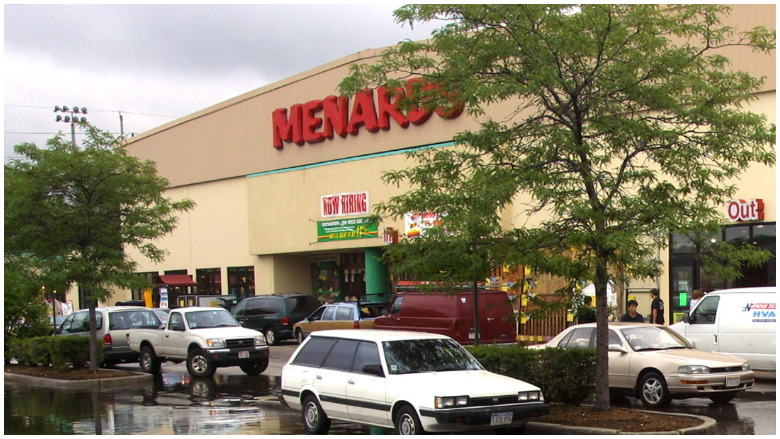
Menards, the Wisconsin-based home improvement chain, is facing intense social media backlash over its requirement that customers wear face masks to protect against the spread of COVID-19.
“Won’t be shopping at your store anymore since you are requiring masks and selling them at your store,” wrote one angry Twitter user. “@Menards Really too bad you’re making us wear masks to shop! I’ve been a loyal customer for 32 yrs. Not loyal anymore,” wrote another.
Facebook groups have filled up with angry posts about Menards and its mask policy. People wrote they were going to switch to Home Depot or other stores that are not requiring masks. One man wrote, “I refuse to shop there if they require me to wear a bull sh*t mask that doesn’t protect against sh*t, Management needs to pull their head out of their a*s. F*cking idiots.”
However, some people agree with the policy. “I don’t understand the anti-mask debate. These are reasonable steps to safeguard people from contracting the virus,” another man chimed in on Facebook.
Menards’ website describes it as a “family-owned company started in 1958” and headquartered in Eau Claire, Wisconsin. Menards has more than 300 home improvement stores located in Illinois, Indiana, Iowa, Kansas, Kentucky, Michigan, Minnesota, Missouri, Nebraska, North Dakota, Ohio, South Dakota, Wisconsin and Wyoming. Menards founder John Menard, 80, is worth $17 billion, Forbes has reported.
Costco has also said that customers “must wear a face covering that covers the mouth and nose, at all times while at Costco,” according to a statement on its website.
Menards says of its new mask requirement policy:
Due to COVID-19, we are requiring all Guests to wear a mask or face covering while shopping in our stores. If you do not have a mask or face covering, we have masks available for purchase. Thank you for your cooperation and efforts to keep our Guests and Team Members safe.
This author, indeed, was able to purchase a mask for $1 at a Menards store in Wisconsin. The mask was available for purchase at the customer service desk, and employees were wearing masks. In addition, Menards has banned children from its stores, writing, “We are no longer able to allow children under the age of 16 or pets (except service dogs) in our stores. If you look under the age of 16, you will be asked to show your identification (driver’s license).” Menards was previously accused of selling face masks at too high a cost.
On Costco’s Facebook page, there were far more supportive comments than negative for its mask policy when announced.
Here’s what you need to know:
The Anger Is Intense Online Against the Mask Policy
Here are some of the comments on social media:
However, another Twitter user wrote, “Thanks #menards for requiring folks to wear masks in your store. You’re protecting your employees, shoppers and first responders. Thanks also for keeping the kids out since so many parents can control their kids touching everything.”
Wisconsin Gov. Tony Evers praised retailers requiring masks as a good move. “Any time we take precautions is a good thing, and so, if Costco and others want to implement that, it’s a good business decision on their part,” Evers said, according to FOX6.
Menards also asked customers and employees to do the following:
1. Wash hands frequently with soap and water or an alcohol-based sanitizer.
2. Maintain social distancing by keeping six feet between yourself and others.
3. Avoid touching your face.
4. Make sure to cover coughs and sneezes.
5. Stay home if you feel unwell.
The Centers for Disease Control and Prevention recommend people wear cloth face coverings to protect from COVID-19:
CDC recommends wearing cloth face coverings in public settings where other social distancing measures are difficult to maintain (e.g., grocery stores and pharmacies), especially in areas of significant community-based transmission.
CDC also advises the use of simple cloth face coverings to slow the spread of the virus and help people who may have the virus and do not know it from transmitting it to others. Cloth face coverings fashioned from household items or made at home from common materials at low cost can be used as an additional, voluntary public health measure.
There is a dispute over whether masks are effective. The National Academies of Sciences, Engineering and Medicine report that the science is inconclusive:
Overall, the available evidence is inconclusive about the degree to which homemade fabric masks may suppress spread of COVID-19 from the wearer to others. There are no studies of individuals wearing homemade fabric masks, in the course of their typical activities. Only limited, indirect evidence exists regarding the effectiveness of these masks for protecting others, when made and worn by the general public on a regular basis, the rapid expert consultation says. That evidence comes primarily from laboratory studies testing the effectiveness of different materials at capturing particles of different sizes.
That article referred to fabric, not medical, masks.
READ NEXT: Is a Sore Throat an Early Symptom of Coronavirus?

